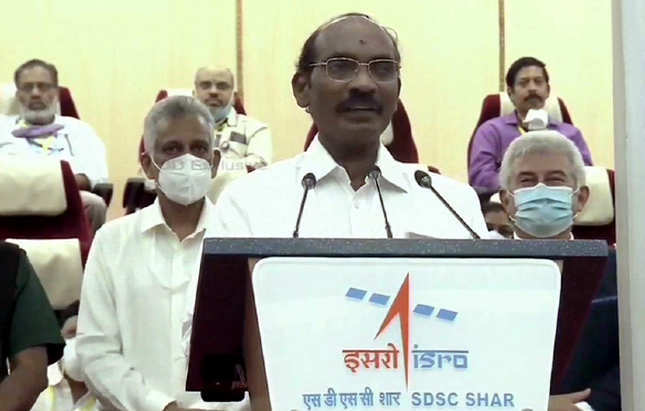In a first, desi satellite takes Gita, PM photo and names of 25k commoners to space | India News – Times of India
SD SAT was among the 19 satellites launched by Indian Space Research Organisation’s PSLV-C51, which lifted off from Sriharikota at 10.30 am on Sunday. Besides carrying a copy of the Bhagvad Gita in a secure digital card format, the SD SAT also carried the picture of PM Narendra Modi engraved on the top panel of the spacecraft to show solidarity and gratitude for his Atmanirbhar initiative and space sector reforms. SpaceKidz India (SKI) said its satellite also carried the names of 25,000 common people to create awareness about space and get people fascinated about space science.
SKI founder and CEO Dr Srimathy Kesan came up with the idea of carrying Gita to space after taking a leaf out of the book of other space agencies, which had in the past carried holy books of other religions like Bible to space and Moon. On the scientific front, SD SAT, a 30x10x10cm cuboid experimental communication satellite, is carrying three scientific payloads – to study space radiation, magnetosphere, and to demonstrate a low-power wide-area communication network — and is expected to have a mission life of two years.

Among the 19 satellites launched was the primary payload, 637-kg Brazil’s earth observation satellite Amazonia-1, which will help the south American country monitor the Amazon forest.
Congratulating the Brazilian president on the successful launch of Amazonia-1, Modi tweeted “Congratulations President @jairbolsonaro on the successful launch of Brazil’s Amazonia-1 satellite by PSLV-C51. This is a historic moment in our space cooperation and my felicitations to the scientists of Brazil.” On the first rocket launch of this year, PM Modi further tweeted, “Congratulations to NSIL (NewSpace India Limited) and @isro on the success of the 1st dedicated commercial launch of PSLV-C51/Amazonia-1 Mission. This ushers in a new era of space reforms in the country. 18 co-passengers included four small satellites that showcase dynamism and innovation of our youth.”
Besides SD SAT, the other four launched satellites built by students are UNITYsat, a three-in-one satellite developed by universities that will provide radio relay service, and ‘SindhuNetra’ satellite developed by Bengaluru-based PES University, which was awarded the Rs 2.2 crore contract by the Research Centre Imarat, which is a part of the Defence Research and Development Organisation (DRDO).
‘SindhuNetra’ will be used for identifying suspicious ships through satellite imaging and can also be used to carry out surveillance in specific areas such as the South China Sea or pirate-infested areas near the Gulf of Aden and the African coast.
Describing it as a special mission for the country, Isro chairman K Sivan said the space agency guided the universities in building the satellites and that the launch will enthuse industry and academic institutions to build their own satellites in future. Sivan said the mission was also special as the five satellites came under the new space reforms announced by the Modi government last year.


